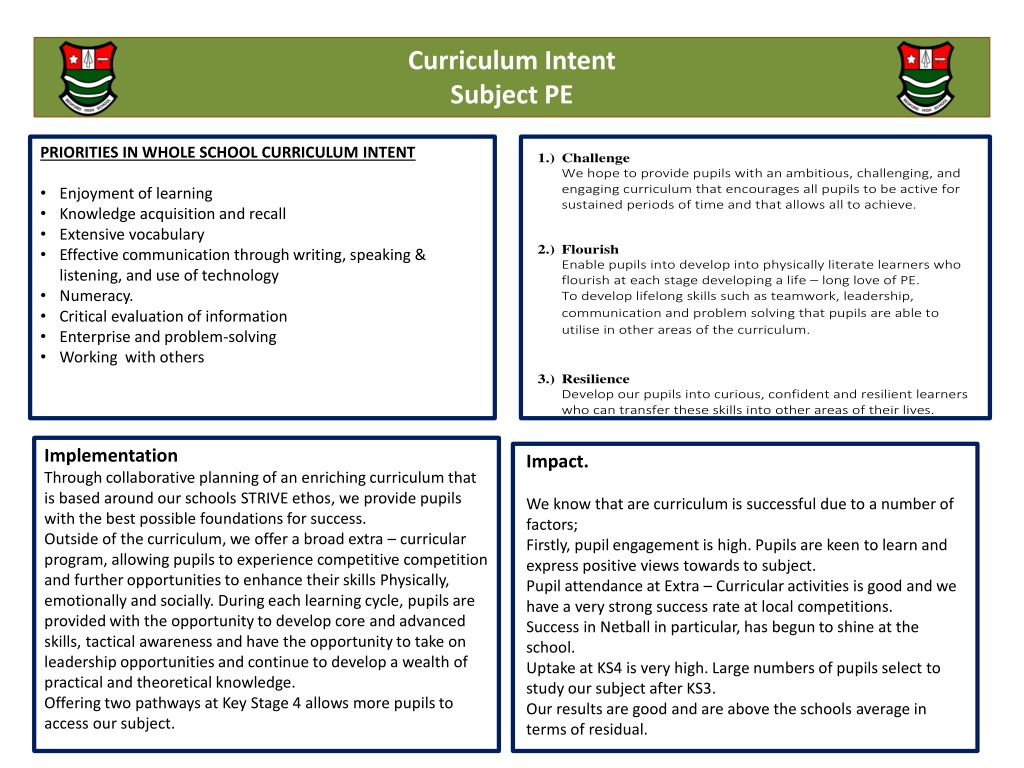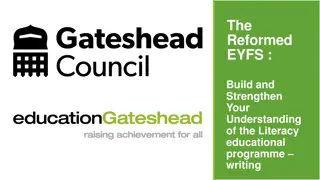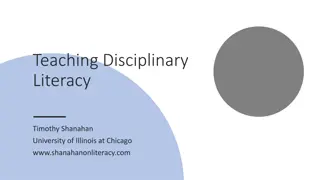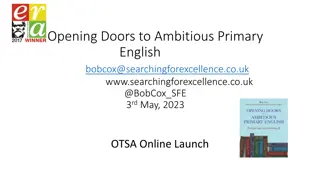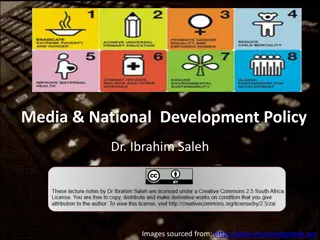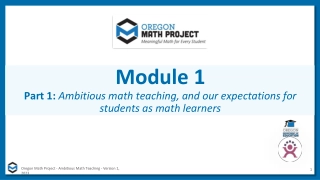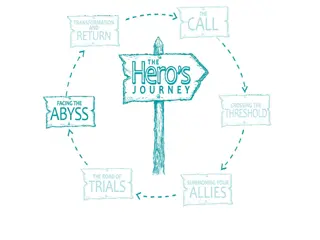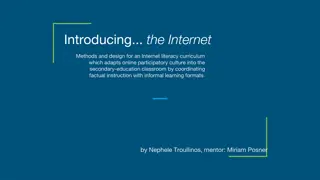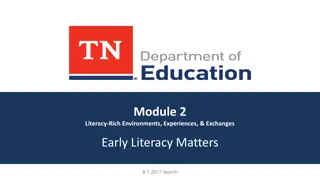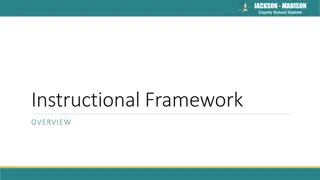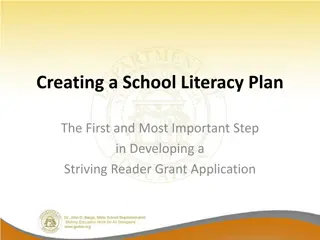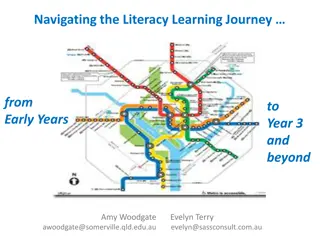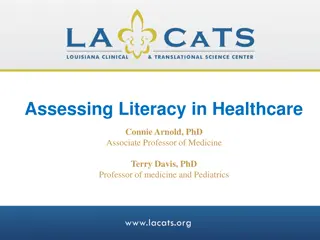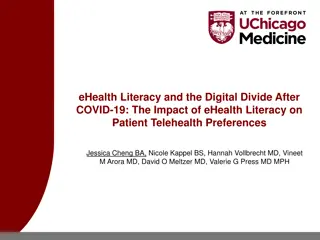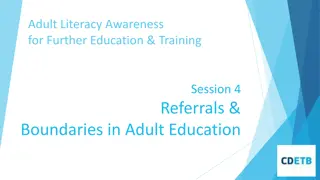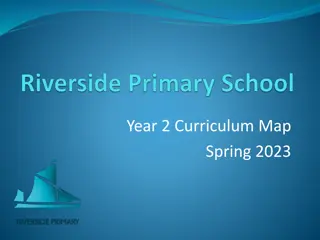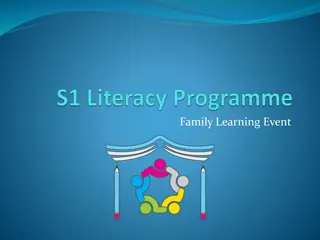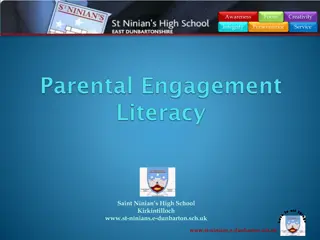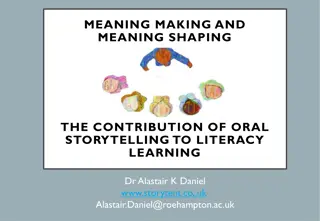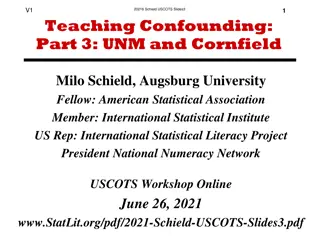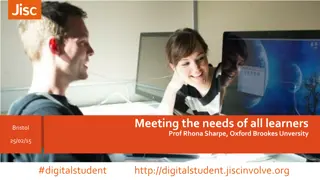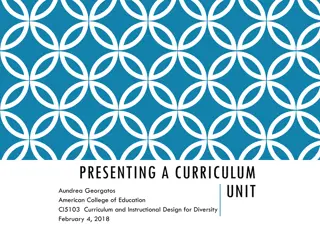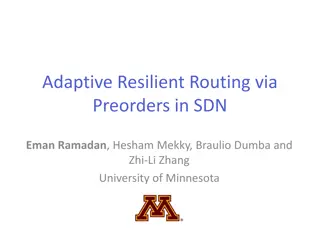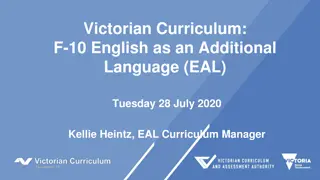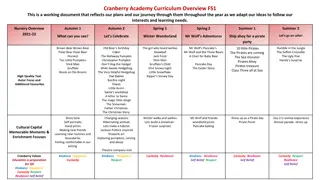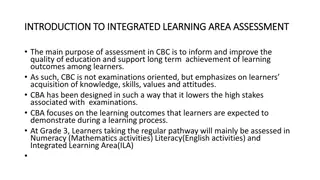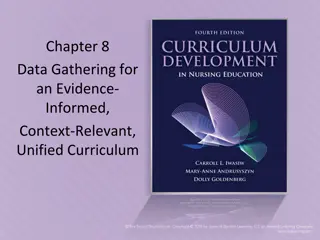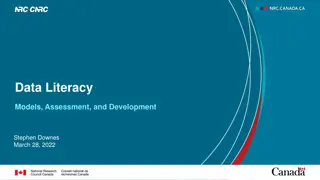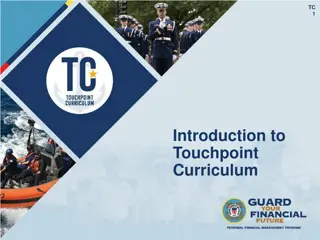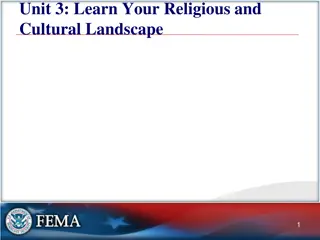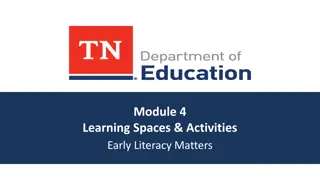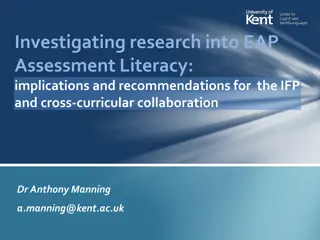Ambitious PE Curriculum Fostering Physical Literacy and Resilient Learners
Providing an engaging and challenging physical education curriculum to promote physical activity and vital skills like teamwork, leadership, and problem-solving. Emphasis on developing lifelong love for PE and transferring skills to other areas of the curriculum. Success seen in high pupil engagement, strong extra-curricular participation, and positive competition outcomes, enhancing resilience and confidence in learners.
Download Presentation

Please find below an Image/Link to download the presentation.
The content on the website is provided AS IS for your information and personal use only. It may not be sold, licensed, or shared on other websites without obtaining consent from the author. Download presentation by click this link. If you encounter any issues during the download, it is possible that the publisher has removed the file from their server.
E N D
Presentation Transcript
Curriculum Intent Subject PE PRIORITIES IN WHOLE SCHOOL CURRICULUM INTENT Challenge We hope to provide pupils with an ambitious, challenging, and engaging curriculum that encourages all pupils to be active for sustained periods of time and that allows all to achieve. communication and problem solving that pupils are able to utilise in other areas of the curriculum. 1.)Challenge We hope to provide pupils with an ambitious, challenging, and engaging curriculum that encourages all pupils to be active for sustained periods of time and that allows all to achieve. 2.)Flourish Enable pupils into develop into physically literate learners who flourish at each stage developing a life long love of PE. To develop lifelong skills such as teamwork, leadership, Enjoyment of learning Knowledge acquisition and recall Extensive vocabulary Effective communication through writing, speaking & listening, and use of technology Numeracy. Critical evaluation of information Enterprise and problem-solving Working with others 3.)Resilience Develop our pupils into curious, confident and resilient learners who can transfer these skills into other areas of their lives. Flourish Enable pupils into develop into physically literate learners who flourish at each stage developing a life long love of PE. To develop lifelong skills such as teamwork, leadership, communication and problem solving that pupils are able to utilise in other areas of the curriculum. Success in Netball in particular, has begun to shine at the school. Uptake at KS4 is very high. Large numbers of pupils select to study our subject after KS3. Our results are good and are above the schools average in terms of residual. Implementation Through collaborative planning of an enriching curriculum that is based around our schools STRIVE ethos, we provide pupils with the best possible foundations for success. Outside of the curriculum, we offer a broad extra curricular program, allowing pupils to experience competitive competition and further opportunities to enhance their skills Physically, emotionally and socially. During each learning cycle, pupils are provided with the opportunity to develop core and advanced skills, tactical awareness and have the opportunity to take on leadership opportunities and continue to develop a wealth of practical and theoretical knowledge. Offering two pathways at Key Stage 4 allows more pupils to access our subject. Impact. We know that are curriculum is successful due to a number of factors; Firstly, pupil engagement is high. Pupils are keen to learn and express positive views towards to subject. Pupil attendance at Extra Curricular activities is good and we have a very strong success rate at local competitions. Resilience Develop our pupils into curious, confident and resilient learners who can transfer these skills into other areas of their lives.
Key Stage 3 PE Order pupils learn sport will vary. Taught on a carousel. KNOWLED GE FUTURE DEVELOPMENT CONCEPTS SKILLS RATIONALE PSHE Links to competitions Personalised opportunities to improve fitness; learning how to stay fit today and for the rest of your life. Badminton Competence Performance, Creativity Healthy active lifestyles Range of skills; serves (F and B) Smash Drop shot Overhead clear Net shot Drive Physical Personalised opportunities to improve fitness; learning how to stay fit today and for the rest of your life. Allows pupils to use a range of tactics and strategies to outwit opponents. Develop skills so they are able to play competitive matches. Links to school competitions Have to officiate both singles and doubles game. Developing tactical awareness. Emotional Opportunities to develop independence, resilience, self-esteem and a growth mindset. The effects on reduced stress and anxiety disorders along with reduced effects of bullying and body confidence issues are key here Links to football academies and local teams Football Competence Performance, Creativity Healthy active lifestyles Develop skills to outwit opponent; Passing, shooting, control, heading. Play an effective role in small sided conditioned gamed and 7 v7 + More emphasis on positioning and larger sided games as move through KeyStage. Pupils are not only given the opportunity to develop skills and tactical awareness, they are also encouraged to work as part of a team. It allows pupils to develop confidence to get involved in exercise and continue to take part. Enrichment activities Pupils have the opportunity to take part in a range of extra curricular events which vary throughout the school Year. Pupils also have the opportunity to compete against other schools in a range of sporting events through matches and
assertive and communicate effectively. It is also imperative that students feel connected and positive about their life chances. Sport education model This allows pupils to lead elements of the course including warm ups. This helps pupils to develop leadership, confidence and empathy. Rugby Pupils are not only given the opportunity to develop skills and tactical awareness, they are also encouraged to work as part of a team. skills necessary to outwit opponents. Passing, receiving, tackling and beating an opponent will be developed through small sided games and conditional situations. Demonstrating high quality performances and accurate replication will be assessed. Competence Performance, Creativity Healthy active lifestyles It allows pupils to develop confidence to get involved in exercise and continue to take part. Striking and fielding Pupils are able to take part in competitive and non competitive situations to develop skills. Batting, bowling, fielding including; Working as part of a new team to develop an effective outcome. Undersanding the difference between other people and how they play/ compete. Competence Performance, Creativity Healthy active lifestyles Success in each position. Effective catching. Stopping the ball on the move- long barrier- Bowling technique Tactics as a fielder and batter Tactical awareness plays a bit part in these lessons.
Dance Competence Performance, Creativity Healthy active lifestyles Develop skills and use creativity to develop a fluent dance sequence. Learn to select and develop a range of compositional principles of there own. To perform a dance sequence showing an understanding of style, artistic intention and accompaniment. Body language, concept & movement will be developed through compositional ideas. Demonstrate high quality performances, techniques and sequences. Dances from other cultures. Passing push, hit, slap. receiving, shooting, tackling and beating an opponent will be developed through small sided games and conditional situations. Demonstrating some high quality performances and accurate replication will be assessed Hockey Competence Performance, Creativity Healthy active lifestyles Athletics Competence Performance, Creativity Healthy active lifestyles
Essential knowledge at KS3 Fundamentals of running, jumping, throwing and catching, kicking and striking in isolation and combination. Playing competitive games and modified where appropriate.
Key Stage 4 PE Order pupils learn sport will vary. Taught on a carousel change every 6 weeks. FUTURE DEVELOPMENT PSHE The focus during Ks4 is a about being physically active and learning how to stay fit today and for the rest of your life. KNOWLEDGE CONCEPTS SKILLS RATIONALE Assessed in 4 areas; Physical Attributes Body tension. More focus on advanced skills. Pupils need to develop the ability to outwit opponents for GCSE Assessment. Trampolining Twisting out of/ into moves. They must be able to analyse performance 10 bounce advanced routine We aim to develop resilience, working together and developing resilience. We offer a wide variety of activities that can link to lifestyles Range of skills Range of skills; serves (Forehand and Backhand) Smash , Drop shot Overhead clear, Net shot Drive Variety provided to allow all pupils to enjoy and succeed in the subject Badminton Quality of skills Links to school competitions Decision Making More analysis, playing the effective shot. Playing to outwit Have to officiate both singles and doubles game Allows pupils to develop a good skill set and flourish creatively Football Continue to develop skills to outwit opponent; Passing, shooting, control, heading, tackling Play an effective role in 11 v 11 game More tactical awareness.
FUTURE DEVELOPM ENT KNOWLEDGE CONCEPTS SKILLS RATIONALE In all we will encourage competition and developing a love of life long learning. Skills to outwit including; Attacking and defending effectively. 3 stages of defending Passing on the move. One handing collection. Defensive plays Set pieces Positional play. Netball skills necessary to outwit opponents. Passing, receiving, tackling and beating an opponent will be developed through full sided game. Tactical awareness. Demonstrating high quality performances and accurate replication will be assessed. Set pieces Rugby Technique of manoeuvres completed with high levels of: Aesthetics of movements Body tension/ extension, coordination of body parts Balance Control of body shape Expression Choreography of routines: Motifs Theme and variation Repetition Climax A description of steps Counts/beats Explanation of the stimulus selected Development of motifs Repetition Phasing of the dance. Posture/placement Alignment Tension Use of space, levels and flight Dance
Core skills, to include: Serving Return of serve Offensive strokes: (forehand and backhand) Hit Flick Smash Defensive strokes: (forehand and backhand) Push/slice Chop Application of spin on strokes: Topspin Backspin Teamwork and communication with partner (doubles only) Table Tennis Allows pupils to develop a good skill set and flourish creatively. Pupils need to develop the ability to outwit opponents for GCSE Assessment. They must be able to analyse performance Term 3 Variety provided to allow all pupils to enjoy and succeed in the subject. Variety and High quality curriculum that allows pupils to develop into lifelong learners. Advanced Offensive strokes: (forehand only) Loop Counter-hit Defensive strokes: (forehand only) Block Lob Application of spin on strokes: Sidespin Corkspin Footwork and positioning Links to school competitions Assessed in Decision making.
Essential skills Demonstrate and apply relevant skills and techniques in 3 chosen activities. Demonstrate and apply the necessary skills to increasingly demanding competitive sporting situations. Analyse and evaluate the performance of themselves and other when competing in sport or physical activity
YEAR 10 GCSE KNOWLEDGE CONCEPTS SKILLS RATIONALE Applied Anatomy & physiology Structure and function of skeletal system S & f of muscular system Movement analysis Cardio Vascular and respiratory Systems Effects of exercise on the body systems Continued to develop skills to work as part of a team but in a more theoretical context. Begin with areas that follow directly on from KS3 practical. Some terms are familiar to pupils e.g names of bones. The topics begin with simple skills such as labelling. Ability to link principles to practical examples Term 1 Develop ability to recall basic information. Students begin with the fundamentals for the course. Including how the body moves. Allow development for more in depth and more difficult concepts to grasp. Develop ability to recall definitions and key terms. Applied Anatomy an Physiology cont. Aerobic and anaerobic respiration. Heat rate, Types of blood pressure and pathways Tidal volume, Breathing rate, Gaseaous exchange. Develop ability to describe key elements. Interpreting data and graphs. Term 2
Begin with areas that follow directly on from KS3 practical. Some terms are familiar to pupilsnames of bones. The topics begin with simple skills such as labelling. Physical Training Components of fitness Applying the principles of training Preventing injury in physical activity and training. Identify hazards Link the theoretical content to practical situations. Describe pathways of blood and O2. Explain the pathway of blood and how it adapts with exercise Term 2 cont Students begin with the fundamentals for the course. Including how the body moves. Definition and test for 10 components of fitness. Know the 4 principles of training AEP Controlled assessment Learners will assess the physical fitness/strengths/ weaknesses of the performer being analysed using tests for the different components of fitness. Term 3 The Analysing and Evaluating Performance (AEP) task Analyse their ability/ fitness in a sport of their choice.
aa. analyse the importance of the different components of fitness for the activity b. give an overview of the key skills in the activity c. assess the strengths/weaknesses of the performer being analysed in the activity. analyse a movement involved joint, type of movement, muscle group(s), muscle function/role b. classify the skill on the difficulty and environmental continua. Assess why Produce an action plan (not to be implemented) to improve an aspect of the performance of the performer being analysed in the chosen activity.include: which skill or component of fitness you are improving justifications for the skill or component of fitness you have chosen to improve drills and practices to show how you intend to improve the skill or component of fitness chosen, including: risk assessment, coaching points, principles of training and SMART goal setting relevant understanding of the element chosen to improve.ity Term 3
YEAR 10 - GCSE FUTURE DEVELOP MENT KNOWLEDGE CONCEPTS SKILLS RATIONALE Engagement patterns of different social groups in Physical activity and sport. Strategies to increase participation Commercialisation of physical activity and sport Influence of media on PA and Sport Understand the Golden triangle. Influence of sponsorship. Ethical and Socio cultural issues in PA and Sport Sportmanship; gamesmanship; deviance Performance enhancing Drugs Be able to make direct comparisons between situations and effects on Participation This topic demands a more in depth knowledge. It requires students to assess working patterns and discuss reasons for these patterns. Socio cultural influences. Sports psychology It develops knowledge away form practical skills that students normally associate with sport and requires students to have knowledge about sport in the world around them. As a group and in front of the class. Debating skills - Ability to give a balanced argument. Speaking skills. Term 1 Areas of mental health and discrimination are discusses requiring pupils to have a higher level of maturity than Year 9.
Sports psychology cont. Characteristics of skilful movement and classification of skills Description of motor skills Characterising movements with a range of examples Know the difficulty continuum and environmental continuum Examples and justification. Goal setting SMART targets Mental preparation Types of guidance (4) and feedback (6) All these elements are directly related to the AEP (controlled assessment) Element of the course. Teaching this element of the course directly leads on to the next T e r m 2 Health fitness & well being Ability to achieve accurate and valid results) Ability to represent data. Allows pupils to draw up knowledge they have learnt over the process of the course. AEP Coursework Pupils have the opportunity to reflect upon their own performance and ability and suggest change. Analyse data and produce a conclusion. who what Overview of ability, skills experience. Movement analysis Introduction (Retrieval practice continues throughout) Evaluate own performance. Justify recommendations
YEAR 11- GCSE PE FUTURE DEVELOPME NT KNOWLEDGE CONCEPTS SKILLS RATIONALE Literacy skills. Mathematics skills analysing graphs, interpreting data. Ability to draw upon comparisons and conclusion. Skills link with science investigations. Coursework allows an amalgamation of the learned content over the past few year. It allows pupils the opportunity to develop/ showcases their ability to write extended pieces of writing and analyse data Aep Coursework continued. analyse aspects of personal performance in a practical activity evaluate the strengths and weaknesses of the performance produce an action plan which aims to improve the quality Areas that have proved to be of weakness during previous exams and mock paper. Revision Past papers Areas of weakness/ misconception Continued revision on areas of weakness. Revision for mock exam Term 1 Revision skills Pupils have the opportunity to recap and revisit work covered over previous years. They are able to sample numerous past papers and develop an understanding of what is required by each question. Revision of all topics and Intervention paper 1 Intervention paper 1 D.T.T Term 2 Pupils can make informed choices based on Mocks and class tests to select areas that require further development. They can schedule their revision based on this. Exams. Continued revision Term 3
YEAR 10 Sports studies FUTURE DEVELOPMENT KNOWLEDGE CONCEPTS SKILLS RATIONALE Performance of skills and techniques Creativity Use of tactics Decision making Team work Communication Ability to overcome barriers and maintain performance R052 Developing sports skills Begin L01 L02 L04 Be able to use skills, techniques and tactics/strategies/compos itional ideas as an individual performer in a sporting activity One of two compulsory modules. This area builds on skills taught within KS3. Term 1 Awareness of role within a team how to apply rules and regulations relevant to the activity (e.g. reference to NGB rule books) the importance of consistency (e.g. making sure rules are applied consistently in a variety of situations) the importance of accuracy (e.g. applying rules correctly) The use of signals (e.g. whistles/flags/gestures how, when, why) How to communicate decisions (e.g. with other officials, performers and the audience) The importance of positioning (e.g. to gain the best view to make decisions, not obstruct activity). It is the least demanding of all the modules in terms of academic writing with pupils being able to grasp the concepts with more ease. Be able to use skills, techniques and tactics/strategies/ compositional ideas as a team performer in sporting activity Know the rules of a team and individual sport Be able to officiate in a sporting activity R052 Continue with L04 Complete L03 Term 2
contiued Revision for mock Term 2 2nd of compulsory units. Contemporary Issues in sport Understanding user groups Understanding of other cultures Begin R051 Understanding of other cultures and sports other cultures may play and why. Promotion of values and ethical behaviour through sport. Develop ability to understand the demands of the exam key exam command words This is the most academically demanding unit. bR051 externally assessed exam Understanding barriers to participation This can be repeated twice. Pupils will sit the exam in January and June Year 10 Term 3 Solutions to barriers State, Describe, explain, justify, compare. How hosting events can effect pupils of different backgrounds. Factors which can impact upon popularity of sports Trends in sport Growth of emerging sports
YEAR 11- Sports studies FUTURE KNOWLEDGE CONCEPTS SKILLS RATIONALE DEVELOPMENT + PSHE Understanding the skills that are required for different careers. Allowing pupils to develop their knowledge of careers within sport. R055 working in the sports industry Know the areas of employment within the sports industry Know the skills and knowledge required to work within the sports industry Be able to apply for jobs within the sports industry Understand the impacts that the sports industry has on the UK Different areas of employment within the sports industry, Literacy Numeracy Technology Ability to Write CV Communication Administration/organisati on advertising and marketing coaching/leading/instructi ng facilities finance government media national governing body retail professional sport sport development sports events sport-related gambling sport science Also guides them on where to look for jobs and how to apply for them. Money matters Where and how to apply for jobs, Term 1 Proof reading Target setting
The definition of an outdoor activity Safe practice Weather dictates when this unit Is completed. This is a new unit for this academic year. The success of this will determine whether we continue or change the unit next year. Decision making Examples of outdoor activities R056 Developing skills in Outdoor activities Team building Due to the safety nature of the unit, a good level of maturity is required. Provisions of outdoor activities in the UK Problem solving Benefits. Planning an event. Know about different types of outdoor activities and their provision This is a topic that the pupils enjoy. It allows opportunity for them to learn outside of the classroom and develop skills that cannot be taught whilst sitting at a desk. Skill development Monitoring and evaluating performance/ environment. Planning an outdoor activities Assessing hazards Understand the importance of taking part in outdoor activities Term 3 Care and equipment Safe practice Be able to plan an outdoor activity Decision making Team building Be able to demonstrate knowledge and skills during an outdoor activity. Promblem solving
YEAR 10 sports studies 2020 2021 Topic area . Term 1 R051 Exam preparation exam Jan Cancelled Term 2 Year 10 R056 Outdoor ed with exam retrieval Term 3 R056 with exam retrieval Term 1 Complete R056 Nov submission Exam revision Term 2 Exam Jan Submit Practical Start R054 Year 11 Term 3 Submit R054 June Exam retake - June
